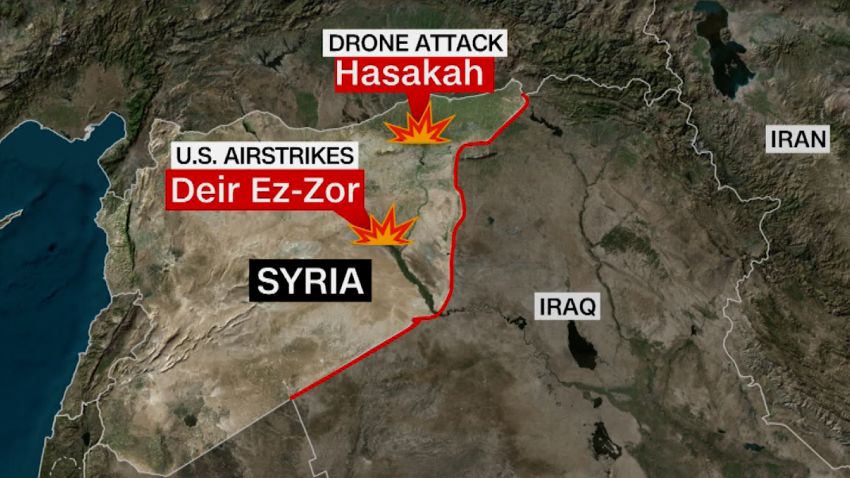
CNN
—
The US has conducted an airstrike in Syria against what it said were Iranian-affiliated facilities after a suspected Iranian drone struck a facility housing US personnel in the country, killing an American contractor and wounding five US service members.
The deadly exchange comes at an unusually sensitive time in US-Iranian relations, with the stakes high for both countries. Talks underway to release four American citizens illegally held in Iran are closing in on completion, according to a regional diplomat; Iran recently, but erroneously, said the deal was done – a strategy used in the past that indicates Tehran is hungry for the benefits such a deal might bring. Tit-for-tat strikes in Syria could rupture those relations.
Iran’s appetite for anything that revives its moribund economy is huge. One place they know they won’t get relief is over the glacial Iran nuclear deal talks. Most of America’s regional allies think the JCPOA deal, as it was known, is effectively dead.
Even so, any escalation in Syria risks spiking those tensions too.
Iran restarted its race for weapons-grade enriched uranium after former US President Donald Trump pulled his country out of the deal in 2018. President Joe Biden has failed to bring America back to the table with Iran.
In the meantime Israeli Prime Minister Benjamin Netanyahu threatens to “do everything within Israel’s power to prevent Iran from acquiring nuclear weapons.” Iran reads that as meaning military action.
More than a decade of civil war has rendered Syria an economic basketcase, with Iran looking for every opportunity to take advantage, cement its power over swaths of territory, and give Tehran a safe land bridge to its proxy Hezbollah in Lebanon.

Ambulances race to scene of suspected drone strike that killed a US contractor
King Abdullah, of neighboring Jordan, labeled this bridge a potential “Shia crescent;” he feared it, as did his allies, but so incendiary was the term interpreted in Tehran he never repeated it publicly.
In its panoply of pressure-tools, strikes on US bases are a well-worn Iranian tactic, but in Syria today the grounds are shifting, more than literally.
The recent earthquake has helped President Bashar al-Assad ease out of his decades-long estrangement with his Sunni Arab neighbors. Tehran’s Shia-dominated theocratic Persian leadership will instinctively feel uneasy as Arabs again increase their economic and diplomatic heft.
The alienation of Assad from the region had given Iran a freer hand reaching across Syria, creating that “Shia crescent” all the way to Lebanon. All that stood in its way at times was Russia.
Remarkably, given its distance and apparent disconnect from Syria, even Moscow’s illegal and unprovoked war in Ukraine casts a shadow on US-Iranian tensions.
Russian President Vladimir Putin has made a deal with Iran to supply drones and other armaments to kill Ukrainians, in exchange for money and tech support for missile systems – specifically missile components that sanctions put beyond its reach. In Ukraine, Russia believes it is fighting America through its proxies in Kyiv, so why not help Iran’s proxies deliver more blows in Syria?
The answer: part of the complex web of interests running through the war-ravaged nation. Russia, while on the one hand helping Iran in Syria keep Assad’s enemies at bay, has also been instrumental keeping Iran from completing that Shia crescent. Moscow might need Tehran in Ukraine right now, but it certainly doesn’t mean they are ready to cede them the whole of Syria.
So much is in play right now, with so much that could spark more tension.
That suspected Iranian proxies responded after the US strike by firing 10 rockets – albeit this time without causing US causalities – underscores how easily the situation can escalate.
